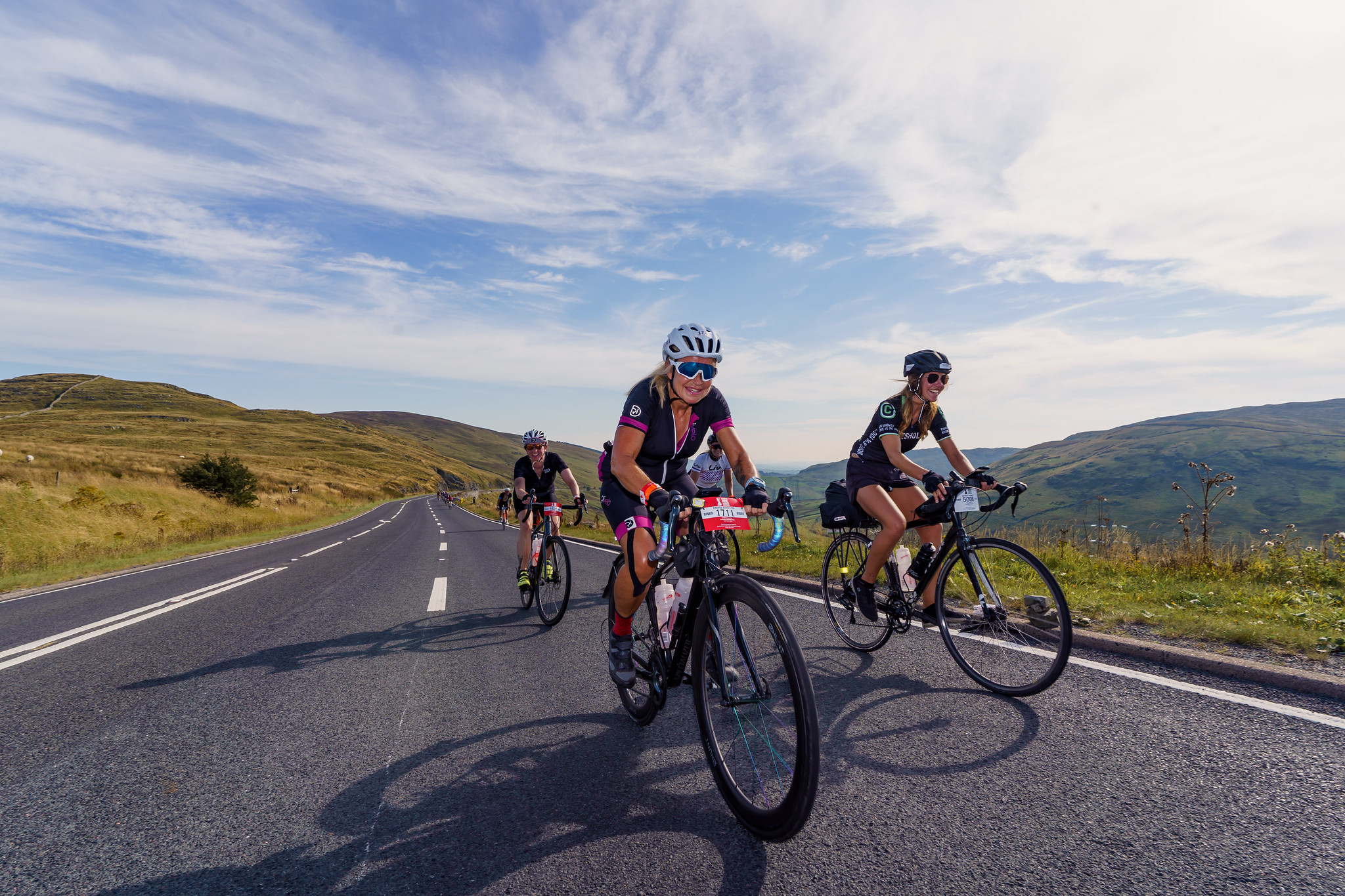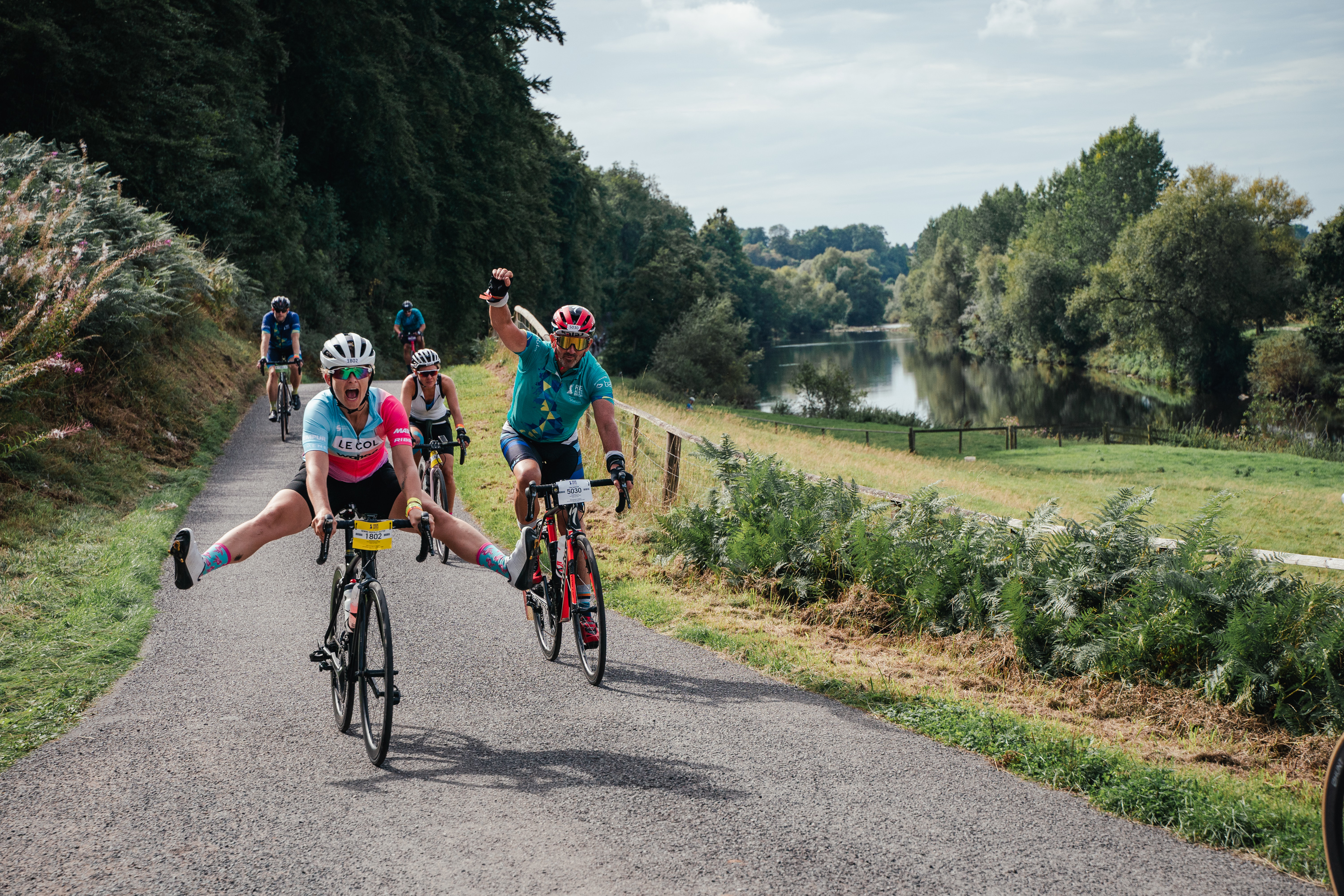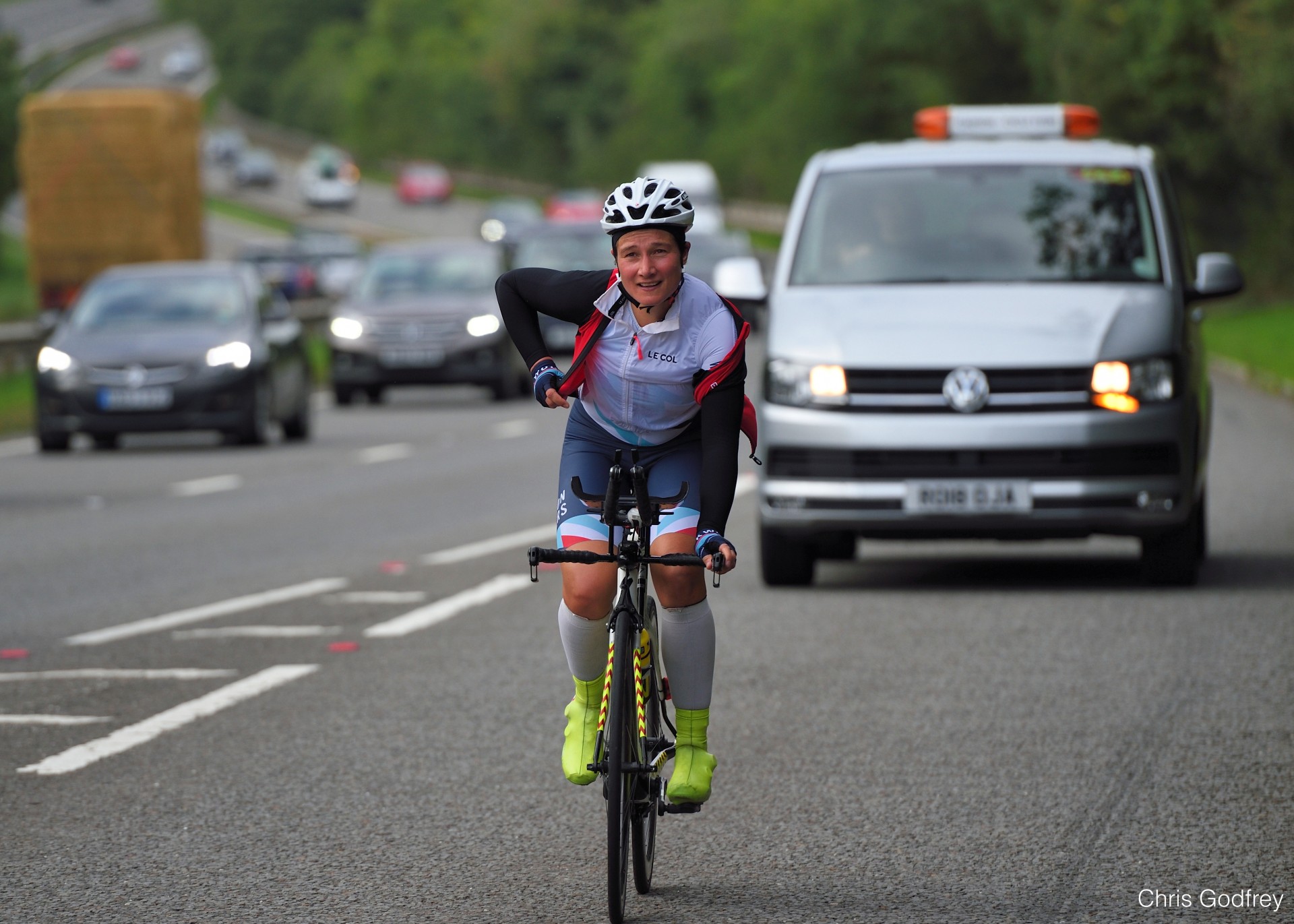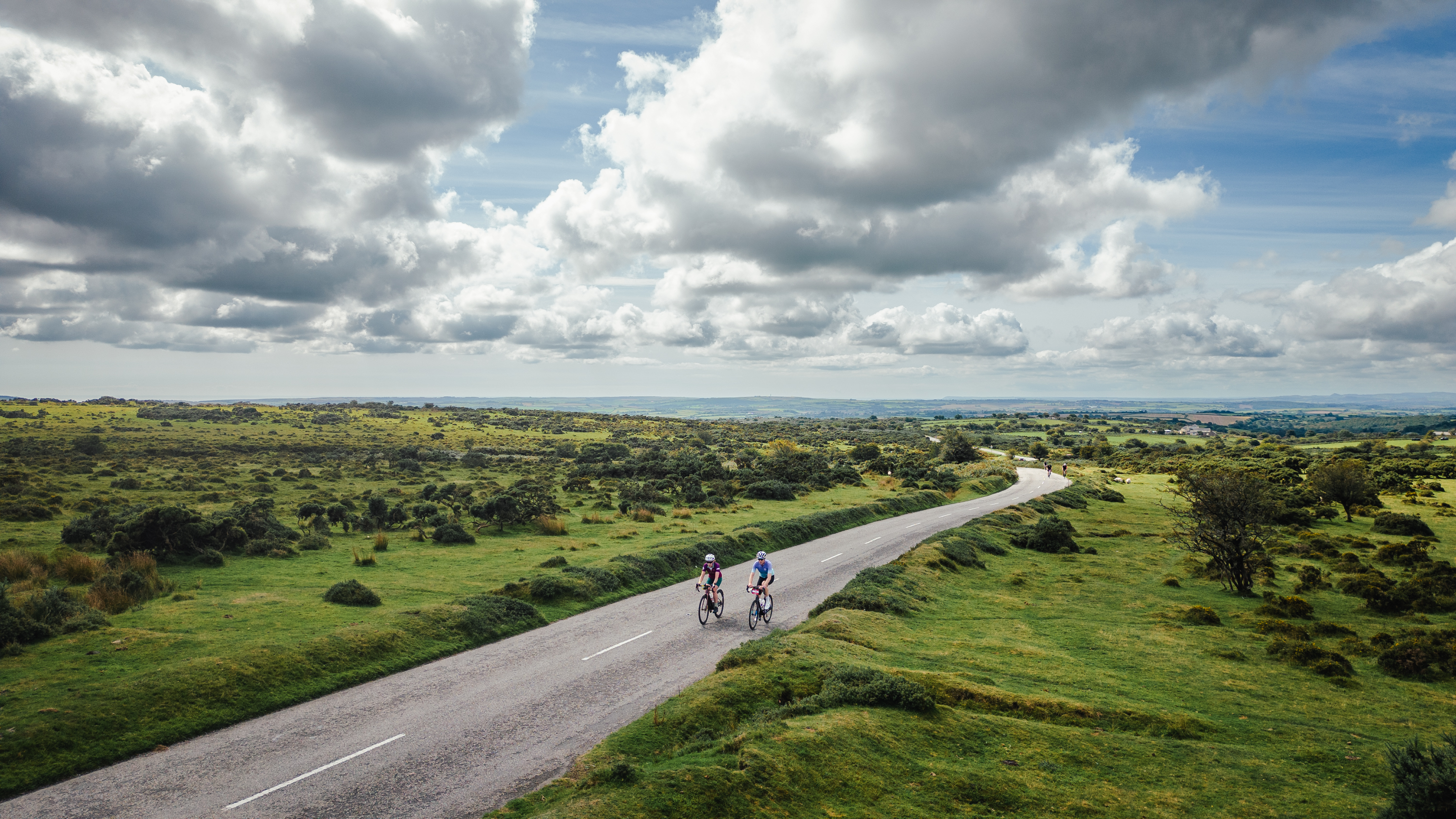
If you're based in the northern hemisphere it won't have escaped your notice that summer has started to appear. A blue sky that most of us in the UK may have disappeared forever has reassured us all that it does still exist, and there's once again a warmth in the air.
Us bike riders know exactly what goes hand-in-hand with the appearance of summer (as well as a prevalence of miniature flying beasties getting in your teeth) – and that's long days in the saddle.
Whether you're trying to hit that magic 50-mile mark for the first time, or you're planning a summer of imperial centuries, many of us will be looking at putting in some serious days out.
Just as well, then, that Cycling Weekly caught up with ultra-distance racer turned cycle coach Jasmijn Muller to procure some top-drawer advice for those long stints in the saddle.
Muller, who has won the World 24-hour Championship, as well as the British National 24 and 12-hour titles, was talking to a group of riders who were signed up for this September's Babble Ride Across Britain. The nine-day, 980-mile ride will see riders average around 110 miles a day as they take on the fabled Land's End to John o' Groats route.
Dutch-born Muller is no stranger to 'LEJOG' herself, having made a brace of serious attempts on the women's record in 2017 and 2018. Here are some of the best tips she offered us for the Ride Across Britain but are equally applicable to any long ride that takes you out of your comfort zone this summer.

1. Eating + drinking = moving
"As long as you can keep eating and drinking, you can keep moving," says Muller, which is good news for those of us who are concerned we may not have trained quite as much as we might have done for our big day.
It sounds simple enough but, as she points out, you have to remember to do it.
"The beauty of riding with others – but also the challenge of riding with others – is that sometimes you get carried away chatting. You're two or three hours in and you look at your water bottle and it's hardly touched, or your food is barely eaten. You end up paying for that later in the day."
She suggests setting reminders on your cycle computer to prompt you. "It's annoying but it does work!" she says.
2. It's partly mental, but it's mainly physical
There's no doubting that when the distance starts to bite and everything feels sore, a battle of wills ensues – if the will to persevere is stronger than the one that's begging you to stop and call your mate to pick you up, then generally you'll finish. But it's not quite that simple, says Muller.
"People often say the longer the distance, the more mental it is. But you can't quite turn it around and say, just train your mind, and you'll be fine," she points out.
"[Training on the bike] is what makes the difference between finishing and not finishing or, it makes a difference between finishing at the front or the back," she says. "The mind game is important. But you have to get your physiology in place first."
It's a caution for anyone thinking they'll skimp on training and will themselves through – but it's also reassuring to know that if you do put the miles in you should finish, however strong you may or may not be feeling that day.

3. All about the base
With so many exotic varieties of interval sessions to pick from, it's easy to overlook the importance of base fitness. But, says Muller, it's something we can all benefit from.
"More of a base also means more intensity, you can and these two things go hand in hand," she says "So you definitely want to work on increasing the endurance pace and start building on top of that."
It does depend on how much time you have though, she says. "Thirty hours in a week, great. But if I've only got six… then I might not get enough intensity in so you have to adjust it a little bit."
4. Don't get sucked into the group ride trap
We've likely all been there – a bunch of fresh-legged riders, all feeling excited about the day ahead… suddenly everyone is going quite a lot harder than is sensible.
"The challenge is understanding what typically happens in group rides – if you overdo it early, you're paying for that [later on]," warns Muller. Even short periods at a high effort can require far longer time to properly recover from.
"On the other hand," she says, "if you ride nice and steady all day, then when you hit the climbs you've still got all that energy available to work hard, where it matters."We've likely all been there – a bunch of fresh-legged riders, all feeling excited about the day ahead… suddenly everyone is going quite a lot harder than is sensible.
"The challenge is understanding what typically happens in group rides – if you overdo it early, you're paying for that [later on]," warns Muller. Even short periods at a high effort can require far longer time to properly recover from.
"On the other hand," she says, "if you ride nice and steady all day, then when you hit the climbs you've still got all that energy available to work hard, where it matters."

5. Exorcising your demons
"One of the things that definitely scares me is crosswind," says Muller. "I'm not the heaviest rider, so I often find myself affected by crosswinds, occasionally being blown about a little bit. That still makes me a little bit nervous."
The good news is that this, and other worries, can be prepared for with gentle exposure during training, she says.
"It's about getting out there but doing it one step out of your comfort zone rather than 10 steps out of it."
Descending is another common bête noir: Muller suggests getting a more confident friend to help.
"If your friend is really good at descending, ask them if they can rein the speed in a little bit so you can follow them and stick to their lines," she suggests. "That would help a lot."
6. Chunking, smiling, or both?
While there's little substitute for proper training when it comes to giving yourself the best chance ahead of the big day, mental strategies on the day can definitely play a part in helping you get through.
"One strategy that works really well on hills is 'chunking' it – so not not looking at or thinking about the top," Muller says. It's about being mindful of where you are in the moment, and just looking a couple of bike lengths ahead to keep your mind off what might feel like the 'enormity' of the task.
If all else fails, just smile. It might sound a little kooky but Muller says the power of a little positive face-pulling shouldn't be dismissed.
"There's this connection between the mental and physical, and having the muscles engaged in the smile. It has that impact on the brain – instantly, you have more happy hormones rushing around.
She suggests smiling to yourself, or to others around you – "or just wave hello to every cyclist you see on your route, which is a nice etiquette anyway. But smiling is a big one."







